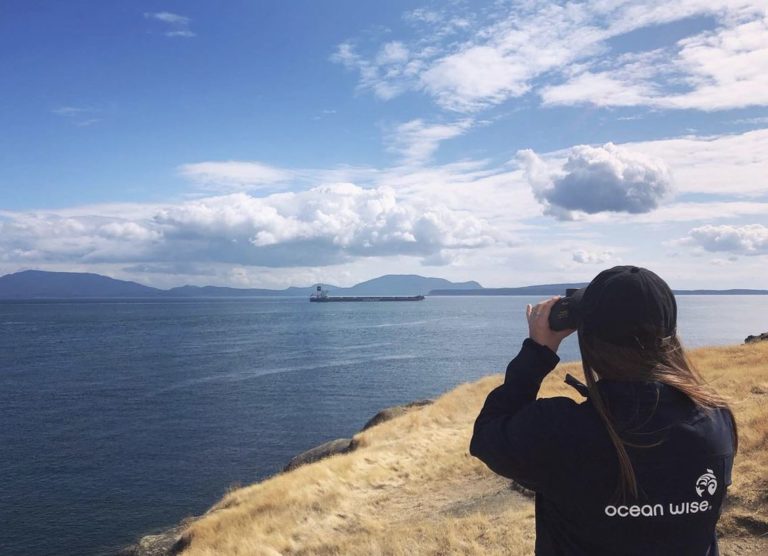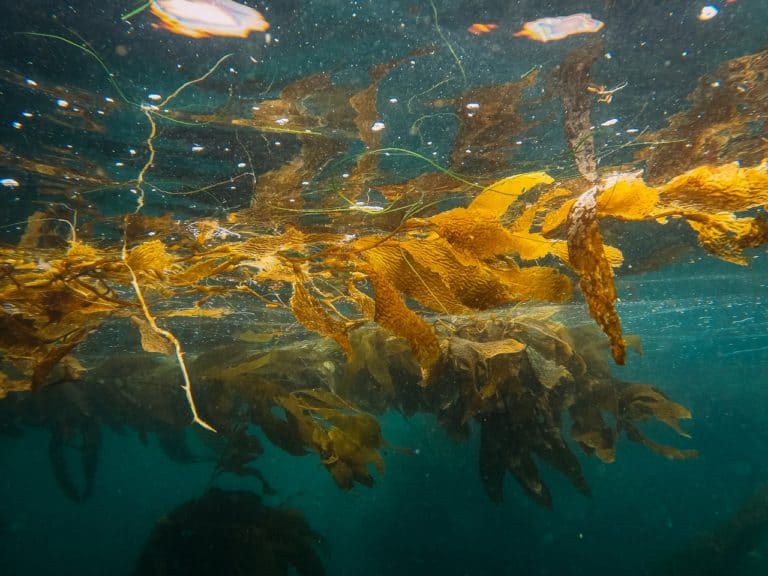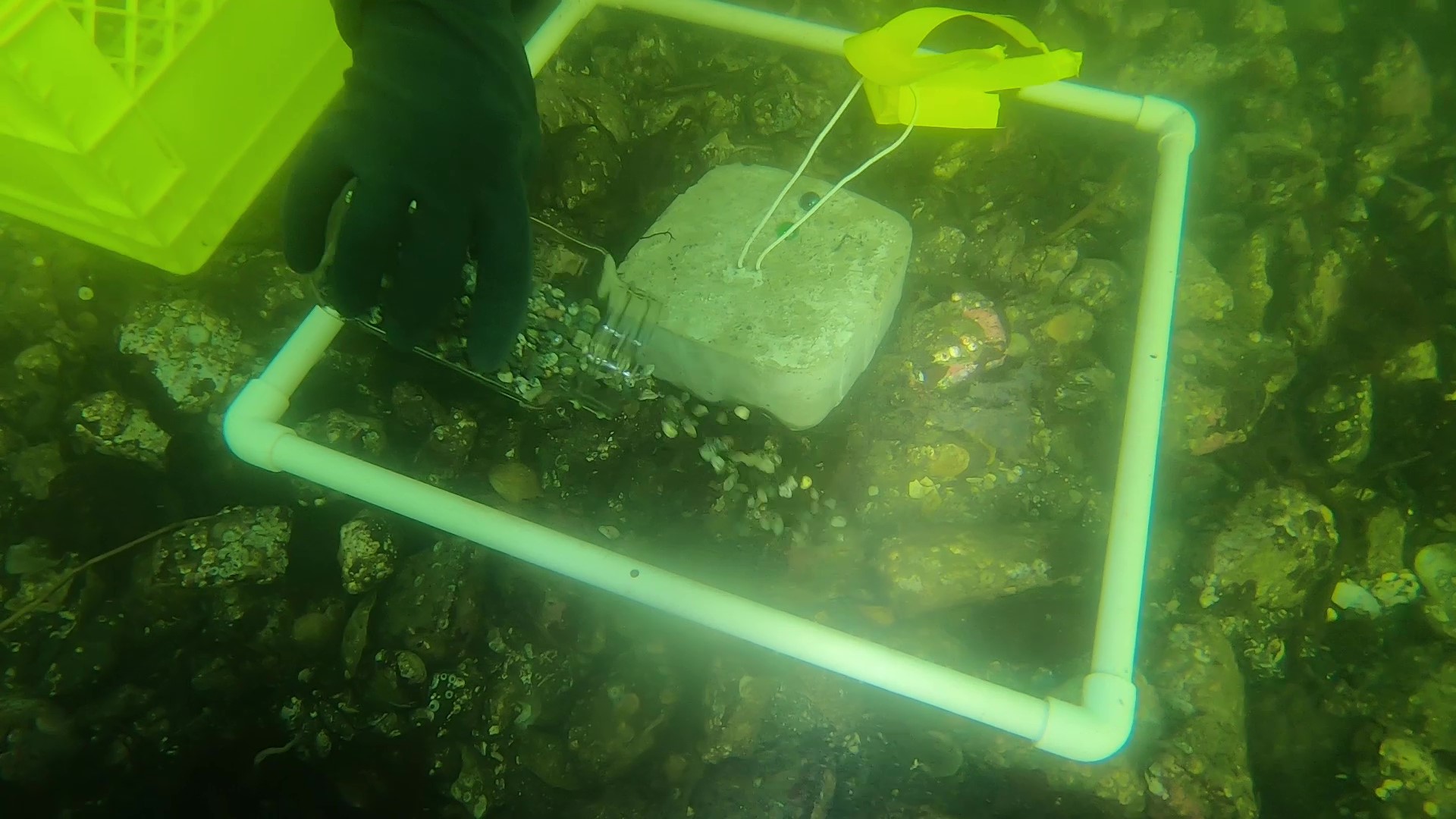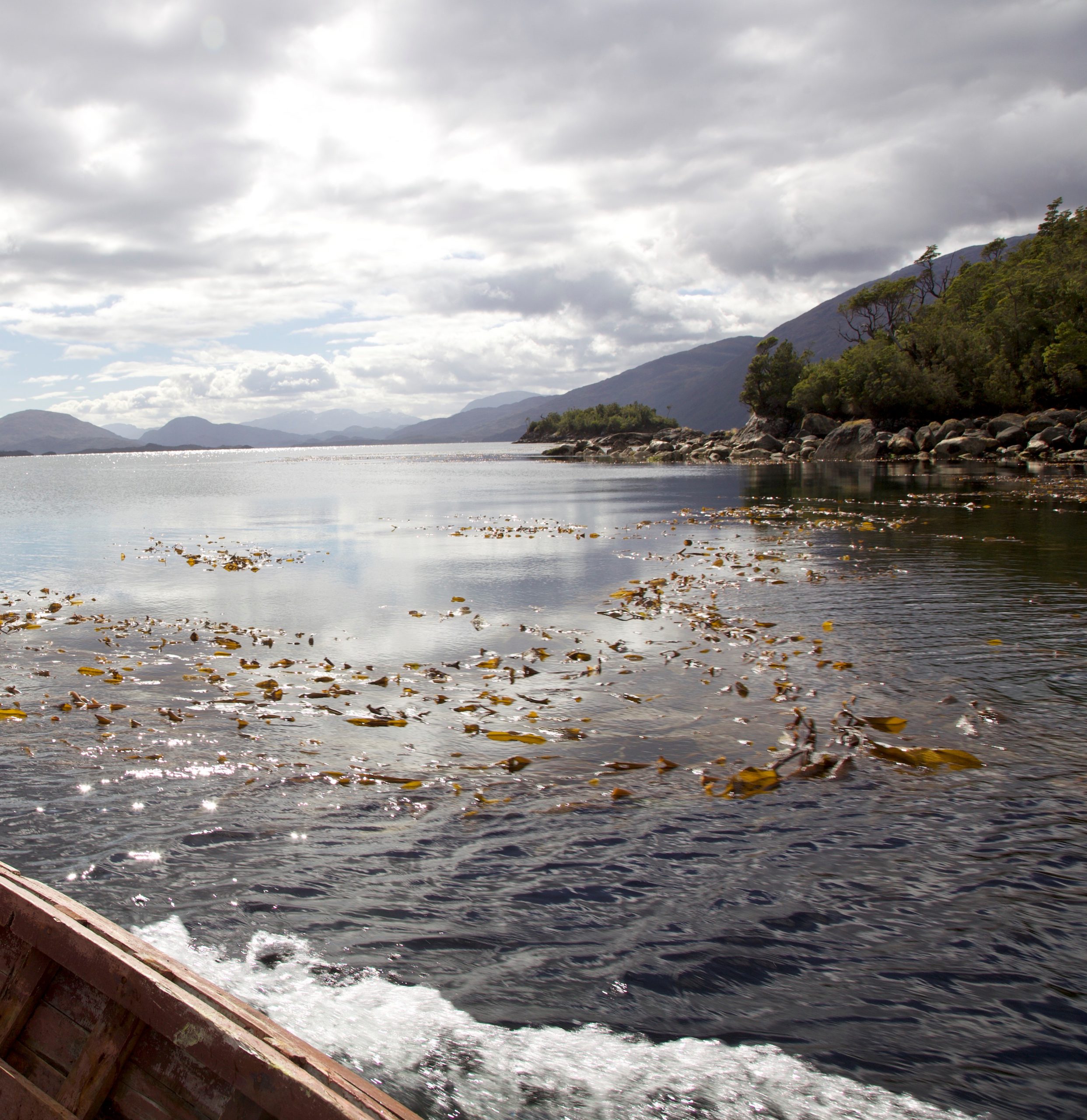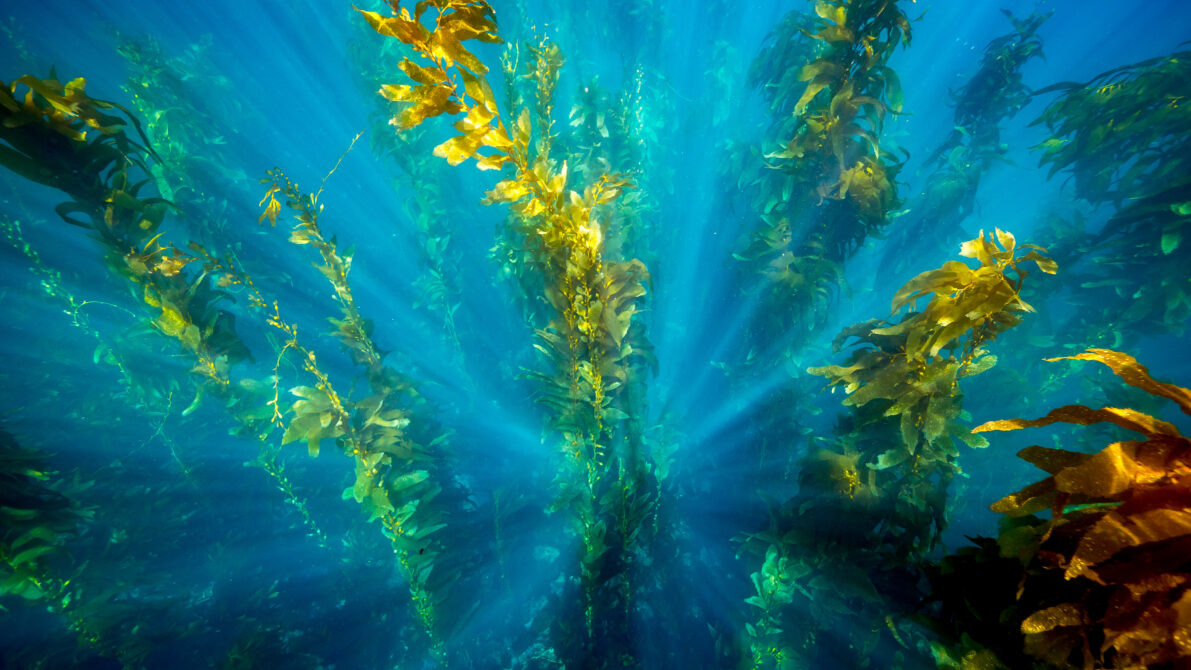
Seaforestation: Benefits to the climate, the ecosystems, and the people of British Columbia
A new report from Ocean Wise shows how restoring kelp forests offers a massive opportunity for the province, and the country
Recently, there has been a lot of talk about kelp. Not just here at Ocean Wise, but in the news, in the culinary world, and beyond. And the attention is well deserved. Kelp is an amazing superfood, requiring very little input to grow protein rich food in our oceans. The reasons we’re excited about kelp, however, extend well beyond its food potential.
A new report from Ocean Wise titled Seaforestation: Benefits to the climate, the ecosystems, and the people of British Columbia, argues that Canada should pursue seaforestation at scale – the restoration, planting, management, and care of underwater kelp forests – as a no-regrets climate solution.
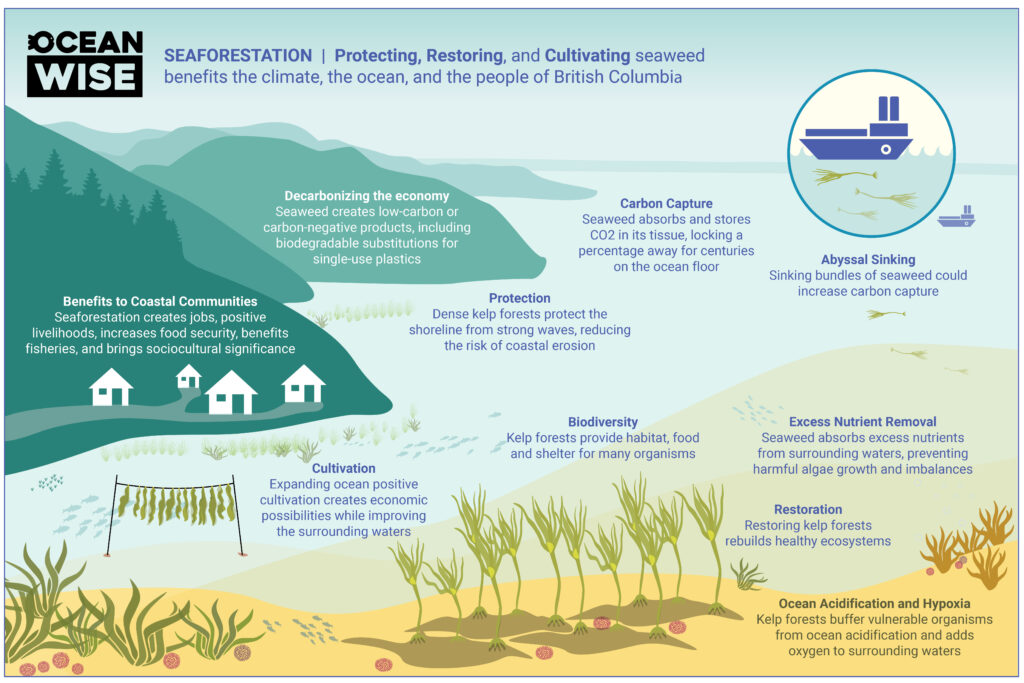
By expanding kelp restoration, protection and cultivation, British Columbia can provide significant removal of harmful greenhouse gases from the atmosphere, while realizing several co-benefits for the ocean, coastal communities and marine life. In addition to removing carbon dioxide from the atmosphere, seaforestation also improves the health of ocean ecosystems, restoring coastal fisheries, and creating environmentally focused jobs in British Columbia.
The report finds that the coast of British Columbia is prime habitat for kelp abundance and species diversity. Dr Alejandra Mora-Soto, lead author of one of the studies in the report, estimates at least 190 km2 of kelp between the Straight of Georgia and Prince Rupert alone, capturing over 7,755 metric tons of CO2 every year – the equivalent emissions of heating 3,900 homes using natural gas.
“The ocean is by far the largest carbon reservoir on the planet, and the seaforestation of kelp forests, which absorb carbon, is an emerging opportunity that should be leveraged. We need every tool at our disposal to fight climate change. As a former tree planter, I’m very enthusiastic about the opportunity for seaforestation to reduce carbon emissions, while also increasing habitat for various sea life,” said The Honourable Joyce Murray, Minister of Fisheries, Oceans and the Canadian Coast Guard.
With significant declines in kelp beds over the past three decades on both Pacific and Atlantic coasts there is a significant opportunity to restore lost kelp forests, and in the process add significant capture of CO2. The potential of kelp as a climate solution is not only what it captures today, but also what it can capture in the future, if restored and expanded responsibly and in areas likely to withstand the impacts of increased warming.
Nature-based climate solutions, like tree planting, have become widely adopted in the fight against climate change. Kelp offers similar opportunity and benefits but, unlike land-based forests, offers sustained carbon removal year after year due to its extraordinary growth speed and biomass turnover, without the risk of loss due to fire. Additionally, kelp can be cultivated for commercial harvesting while still capturing carbon – generating a continuous flow of economic, ecological and social benefits.
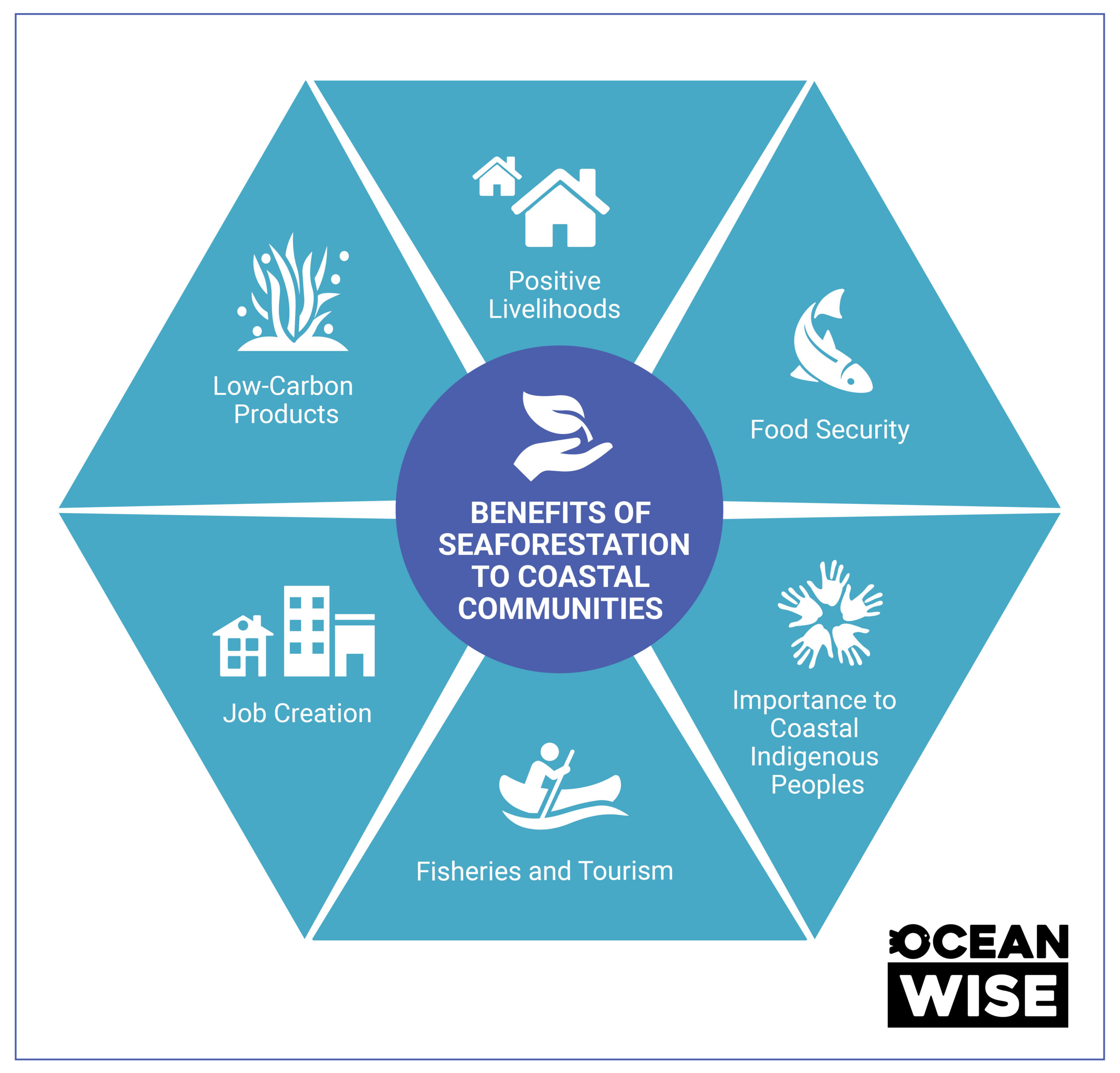
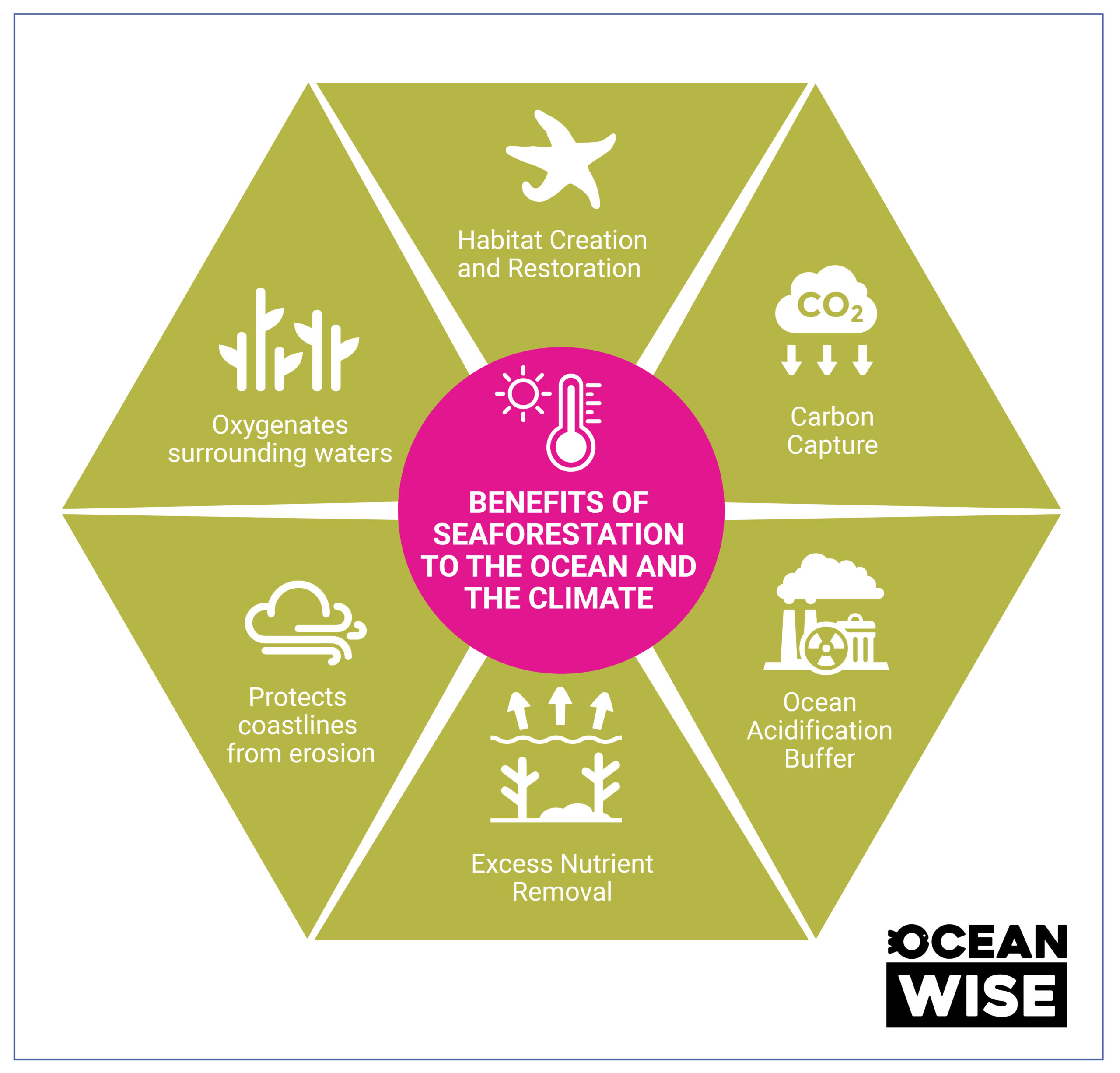
Kelp forests generate over 2.1 billion dollars in potential value annually to fisheries in British Columbia. And the underwater forests buffer vulnerable species from the impacts of ocean acidification, help clean the water by absorbing excess nutrients, and protect coastlines from erosion by dampening the impact of waves.
The main purpose of this report is to bring attention to the critical importance of kelp forests for the health of our coast, and the many benefits that accompany the protection, restoration, and cultivation of seaweed in British Columbia.
With this report, Ocean Wise hopes to foster awareness and interest from policy makers and funders to further seaforestation activities on a timeline equal to the critical pressures of the climate emergency.
Posted June 28, 2022 by Rosemary Newton
